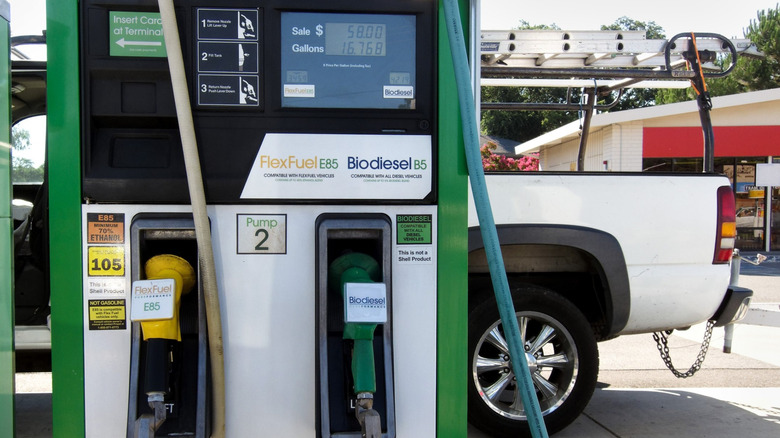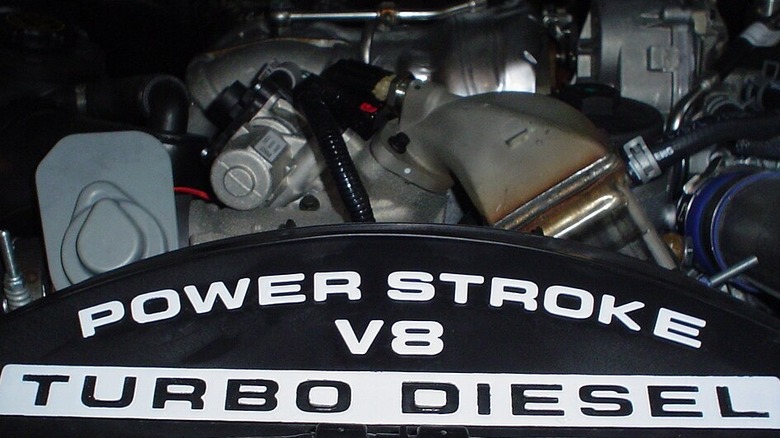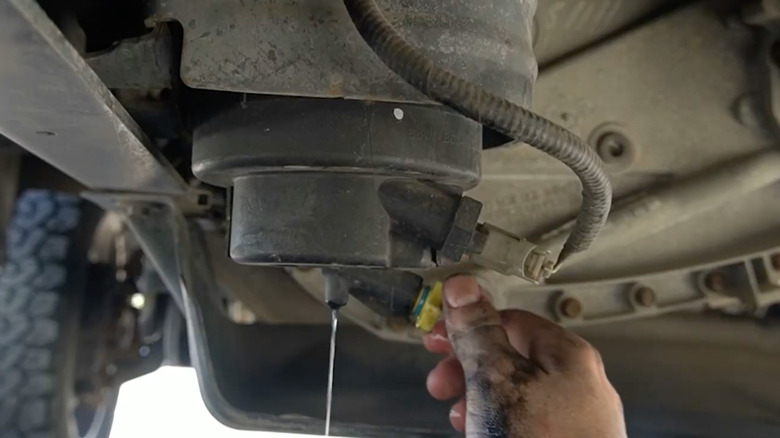
If you drive a diesel car or truck, you've probably bumped into the term biodiesel. Like most owners, you probably first saw the term biodiesel on the pump (as a mix for ultra-low-sulfur diesel) – and
that's because this biofuel didn't become mainstream until after the early 2000s.
Well, biodiesel is a renewable, biodegradable fuel that can be produced from vegetable oil, tallow, or even recycled restaurant grease. Here's where it gets interesting. This biofuel can be used in diesel engines as a blend with conventional diesel. Compared to regular diesel, biodiesel is good for the environment. It burns cleaner and, as a result, produces lower emissions.
With that in mind, if you own a Ford Power Stroke engine, you might be tempted to ask; Can it run on biodiesel? Well, don't beat yourself up; it's a pretty valid question. Yes, Powerstoke engines can run on biodiesel, particularly blends like B20 (20% biodiesel and 80% conventional diesel) without major modifications to your truck. In fact, biodiesel is compatible with many diesel engines, including Cummins. However, compatibility depends on the engine's model year and the specific blend you are using.
Read more: The 10 Best And Worst Engines Made By Major Automakers
Compatibility, Blends And Ford's Official Stance

Diesel blends are mixtures of diesel with other substances to reduce emissions and improve fuel properties. For example, biodiesels can be blended with conventional diesel and used in several different concentrations. According to the U.S. Department of Energy, these blends are typically classified by 'B" followed by a number. Some of the most common biodiesel blends include B5, which is a blend of up to 5% biodiesel, B20, which is a blend of between 6% and 20% biodiesel, and B100, which is 100% biodiesel.
B20 is the most widely supported and used blend since it represents a good balance of cost, compatibility with most engines, emissions, and cold-weather performance. According to Ford, "all Ford diesel engines are capable of running on any blend of biodiesel up to and including B20." However, Ford doesn't specify which Power Stroke engines are compatible with what blends. It encourages owners to refer to the owner's manual for the exact ratios.
On a Ford Super Duty forum, an owner inquired about running biodiesel in their 6.0L Power Stroke engine and received mixed responses from other members. Some shared positive responses, while others expressed their concerns. Later in the thread, the owner mentioned that they had reached out to Ford directly, and after receiving a response, they decided not to move forward with using biodiesel on their truck. "I just can't afford to take the chance to do something that might hurt my engine and/or have Ford void my warranty."
Benefits And Drawbacks Of Using Biodiesel

If it burns cleaner, is more efficient, and is good for the environment, why isn't biodiesel as popular as conventional diesel you'd get at your local gas station? Well, running biodiesel on your Power Stroke engine has its benefits and drawbacks. According to Ford, while B20 biodiesel burns cleaner than petrodiesel and has reduced emissions, it is more expensive than conventional diesel.
Diesel car owners living in the northern parts of the United States, as well as colder regions in the world, may take a pass on biodiesel due to its unfavorable cold-flow properties. Biodiesel, unlike petrodiesel, contains paraffin wax that solidifies at cold temperatures. As such, biodiesel can experience gelling or freezing, potentially clogging the fuel filters, leading to reduced performance. Additionally, biodiesel has low energy content compared to conventional diesel; therefore, using it on your Power Stroke engine may lead to a slight drop in MPG (miles per gallon).
If your owner's manual confirms that your Power Stroke engine is compatible with biodiesel, even then, there are a few diesel maintenance tips to keep in mind. For starters, plan to change your fuel filters more frequently, especially during the initial transition period. It's also crucial to get biodiesel from reputable sources to avoid contamination or poor-quality fuel. Lastly, make a habit of inspecting your fuel lines, injectors, and DPF system regularly to ensure everything stays in good working condition.
Want the latest in tech and auto trends? Subscribe to our free newsletter for the latest headlines, expert guides, and how-to tips, one email at a time.
Read the original article on SlashGear.










